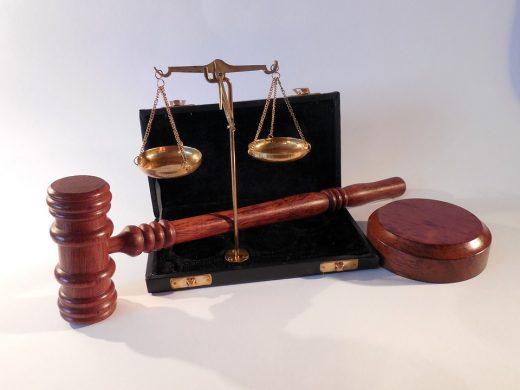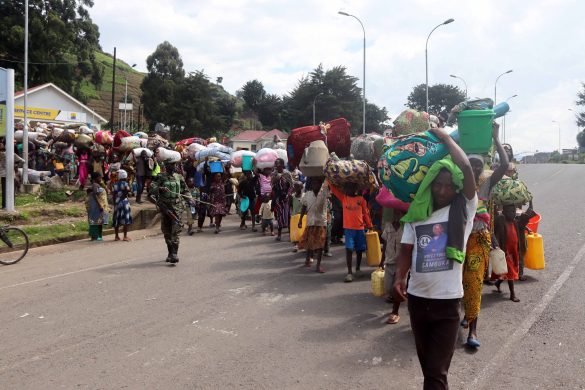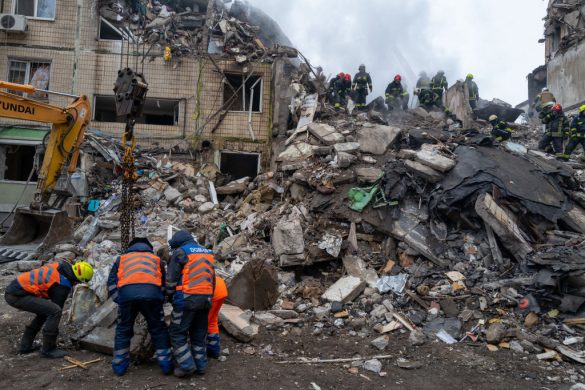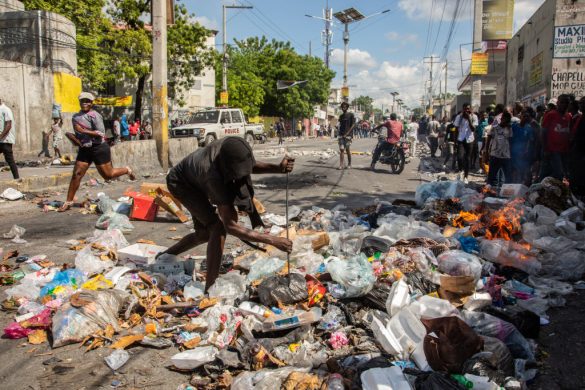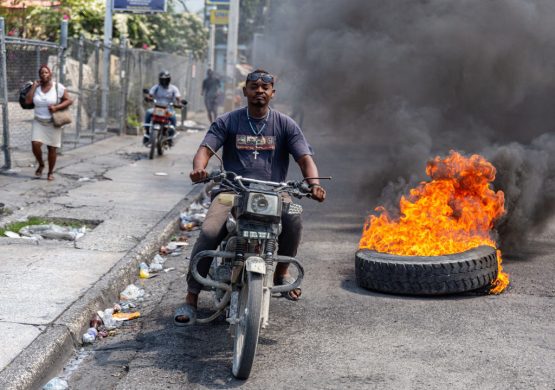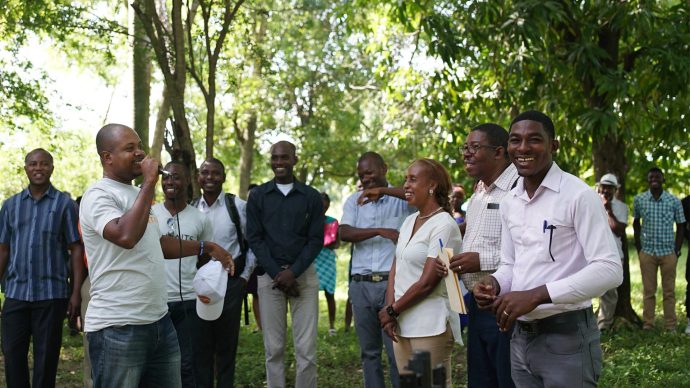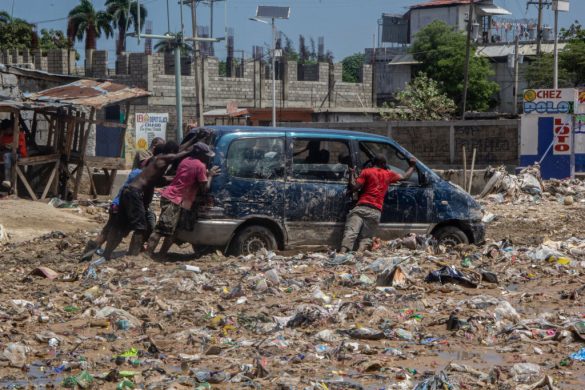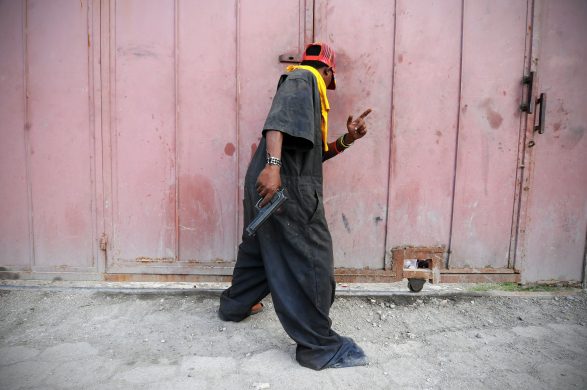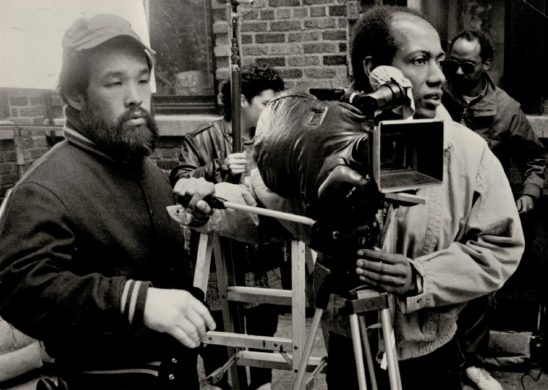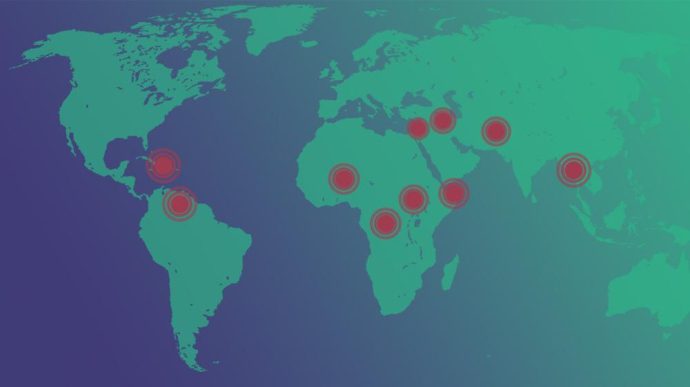Det fremgår af et indlæg på American College of Environmental Lawyers:
Jeff Thaler’s and Jim May’s blog posts about our recent ACOEL delegation visit to Haiti captured the vibrant spirit of Haiti’s legal community and its enthusiasm to build new programs in environmental law.
Haiti offered a different insight as well: dire environmental conditions have spurred strikingly innovative and creative legal thinking. In one sense, Haiti’s challenges are a frontier that can test and forge new environmental laws and concepts.
After our delegation visit finished, my wife and I visited an abandoned United Nations outpost on a dirt road over an hour north from Port-Au-Prince.
Flashpoint in history
Hidden behind encroaching trees and weeds, a blue-trimmed UN guard tower watched over empty concrete foundations and open gates behind a decaying chain-link fence and tangled razor wire.
This fading post is a flashpoint in history.
In 2013, sewage from the UN outpost’s battalion of Nepalese peacekeepers contaminated a nearby tributary and led to an outbreak of cholera that has killed over 9,000 people and sickened over 800,000 so far.
The United Nations has rejected petitions that it should fund and establish a comprehensive sanitation, medical treatment and potable water program to halt the epidemic.
US Court – UN jurisidiction
In response, a group of Haitians and Haitian-Americans filed a class action lawsuit in the federal Southern District of New York court for damages and injunctive relief.
The United Nations stoutly rejected any argument that the U.S. court has jurisdiction over its operations.
The United States vigorously urged the trial court to dismiss the lawsuit, and the court agreed on January 9, 2015 by denying jurisdiction.
The district court found that the UN had not expressly waived its immunity under the Convention on Privileges and Immunities of the United Nations of 1946 (despite the UN’s failure to satisfy other important obligations under the Convention).
The case took a dramatic turn when the Second Circuit decided to hold oral argument on the Haitians’ appeal of the trial court’s dismissal.
Sympathetic to claims
In a packed courthouse in Manhattan on March 1, 2016, the three-judge panel seemed sympathetic to the claims of Haitians who will likely have no possible relief or compensation if the court upholds the United States’ assertions of strong immunity on behalf of the UN.
The court will probably issue its decision in the next few months.
If the court finds that the UN lacks absolute immunity for environmental or health damages caused by its actions, the decision could have a sweeping impact on the UN’s liability for other humanitarian actions that cause environmental harm.
The UN plays a central role in multinational efforts to fight climate change, protect oceanic resources, and preserve endangered species and ecosystems, and the spectre of liability could hamper its activities.
Affecting liabilities of other multinational organizations
Depending on the scope of the court’s ruling, this case might also affect the liability of other multinational organizations whose actions to protect the environment unexpectedly injure human health or natural resources.
Haiti’s enormous environmental and public health challenges sparked this important case, and the legal creativity guiding the lawsuit arose there as well.
Our delegation had the opportunity to meet Me. Mario Joseph, who directs the L'Association Haïtienne de Droit de l'Environnement which filed the lawsuit (along with several other groups).
As lead counsel he guides the team of attorneys handling the case, and he strongly believes that legal creativity and ingenuity can overcome the procedural and jurisdictional barriers to reach a just environmental outcome.
Change comes slowly
If it desires, ACOEL can help monitor and, where appropriate, contribute to the development of these types of innovative environmental legal approaches in Haiti.
The Second Circuit’s ultimate decision may offer an opportunity to discuss these issues with the Haitian environmental bar and with other lawyers who want to help build Haiti’s environmental laws and enforcement options.
In the meantime, change still comes slowly.
When we visited the abandoned outpost, families had moved into the vacant buildings and children were bathing in a nearby stream – directly by the unused outfall pipe where the UN peacekeepers had previously discharged their sewage wastes.
Whatever decisions come from U.S. courts, Haiti will have a pressing need for innovative and effective environmental laws for many years ahead.

